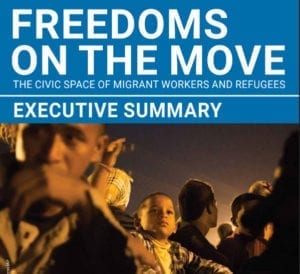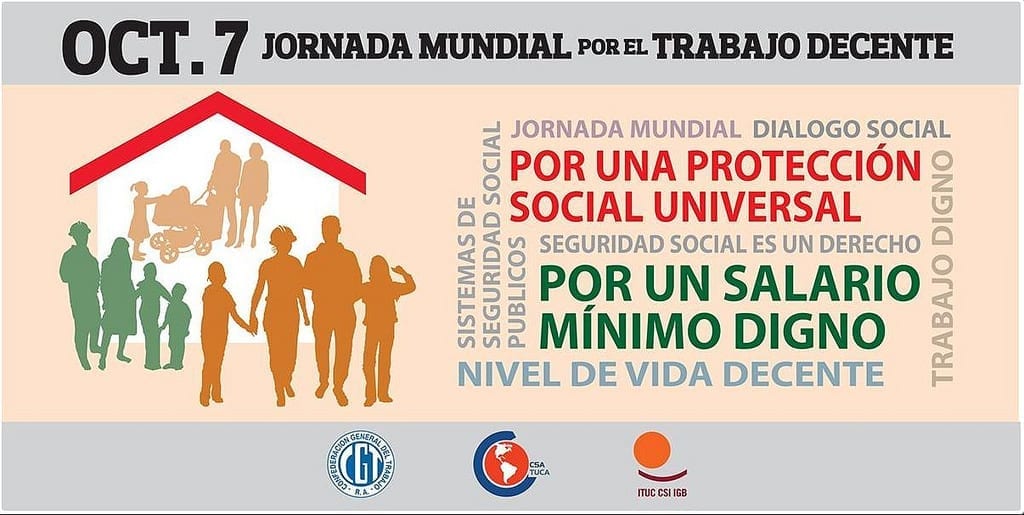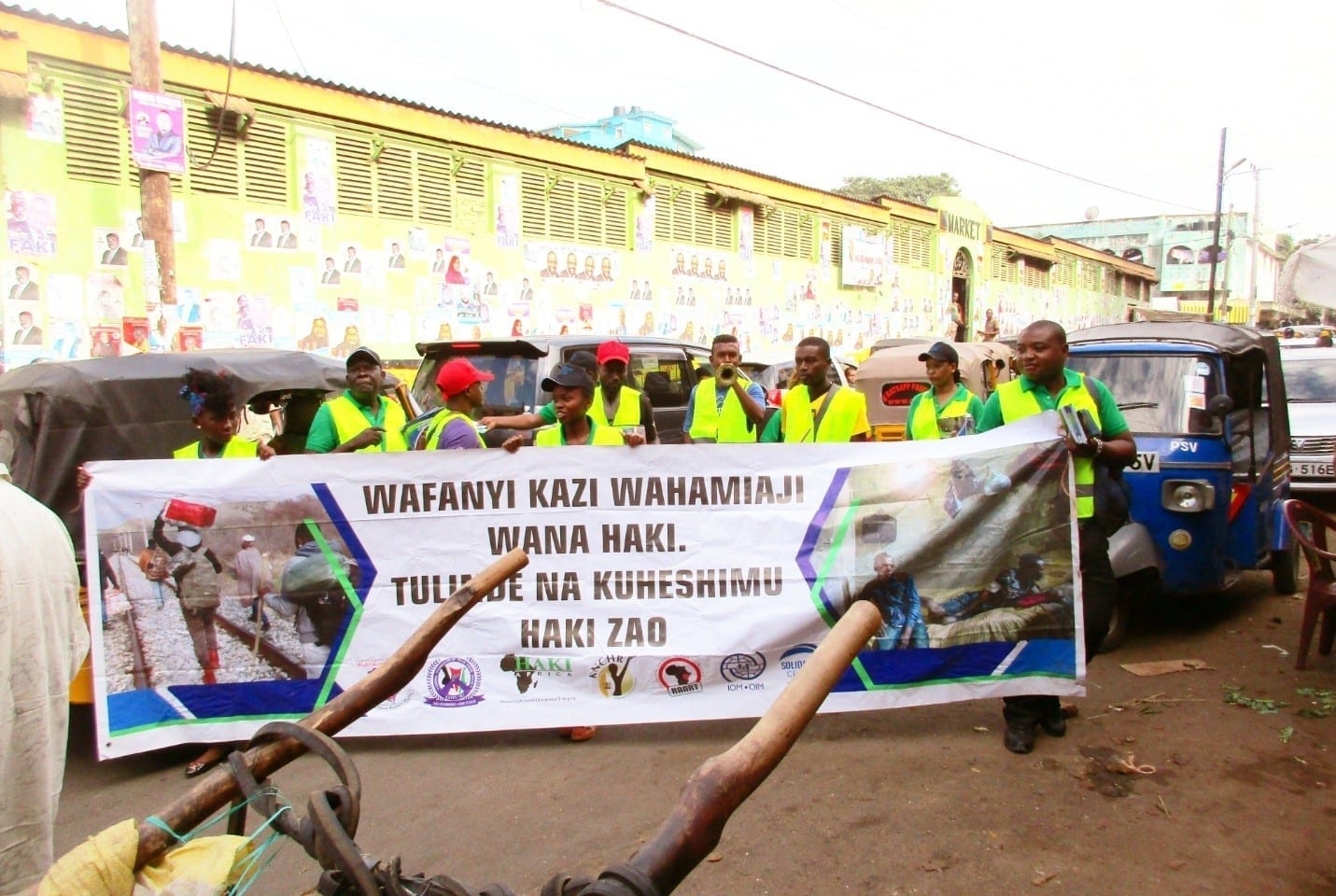When Mwahamisi Josiah Makori, a Kenyan mother of three who worked as a domestic worker in Saudi Arabia, first arrived at her new employer’s house, she was given only 20 minutes before she began work. After that, she began a three-month period which involved hard...
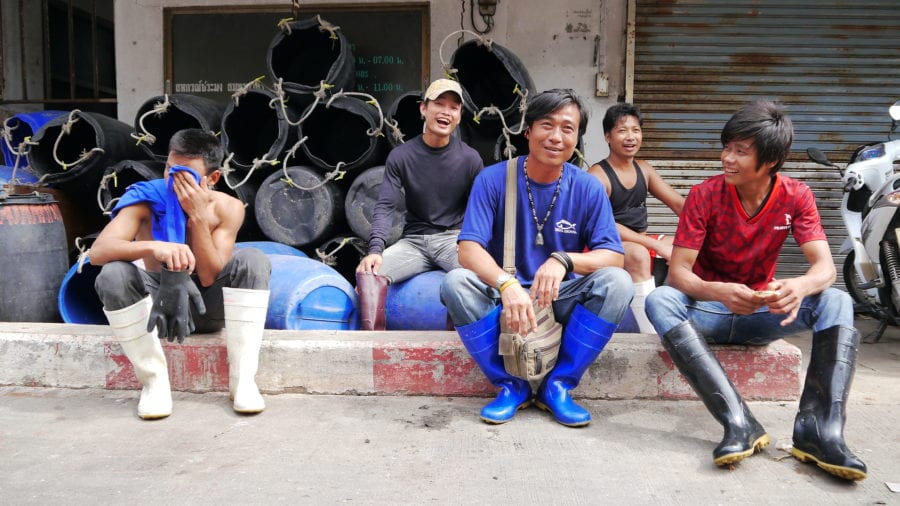
The Solidarity Center strives for rights for people on the move by ensuring migrant workers are fully able to exercise their workplace, social, economic and democratic rights. Solidarity Center/Jeanne Hallacy
Labor migration feeds the global economy. Hundreds of millions of migrant workers worldwide generate billions of dollars in global remittances. They are domestic workers, construction and agricultural workers, factory and service workers, teachers and professionals. Migrant workers often travel long distances due to a lack of decent work at home to support their families and build a better life. They frequently are denied the most basic human rights. For instance, most destination countries deny migrant workers the right to form unions, and explicitly exclude them from labor law protections, and women migrant workers are often subject to gender-based violence and harassment in their workplaces.
The Solidarity Center strives for worker rights for people on the move by ensuring migrant worker rights are a key part of the labor movement. We cultivate an understanding of how exploitative labor migration management schemes are a widespread means by which to undercut worker wages, create precarious work and pit workers against each other. And, in addressing these structural ills, we emphasize a response that understands the intersectionalities and identities that make migrant workers especially vulnerable. Our goal is to ensure that migrant workers are fully able to exercise their workplace rights, as well as their social, economic and democratic rights.
We also focus on the creation of decent work in home countries so workers can migrate by choice and not due to economic coercion. We recognize that migration is not caused by a single factor that “pushes” workers to migrate. In doing so, we bring our unique worker rights voice more broadly by emphasizing that everyone deserves dignity at work regardless of status—climate migrants, economic migrants and conflict refugees. We work to achieve this through programs that focus on union organizing and collective bargaining, policy advocacy, access to justice, safe migration and, more broadly, the ability to exercise fundamental freedoms as democratic participants.
Find out more
- A Pandemic Reset for Migrant Workers, Neha Misra and Shannon Lederer
- How COVID-19 Affects Women in Migration, Carolina Gottardo and Paola Cyment
Freedoms on the Move, a 2019 report by Solidarity Center and CIVICUS, is an urgent call to action for unions and other civil society groups to include migrant workers and refugees in advancing civic rights.
Victory for Kenya Domestic Workers Migrating for Jobs
Kenyans going abroad to work as domestic workers will be required to have contracts, salaries and details of their work assignments before they leave, according to the (Kenya) Daily Nation. The draft policy, crafted by the Labor Ministry and the Kenya Union of...
Reaching Kenya Communities on Realities of Migrating for Jobs
In Kenya, where 2.5 million people toil in irregular, precarious jobs—compared with 900,000 in the formal sector—many workers are unable to support their families and so become targets for the labor brokers who haunt villages and cities and convince them to get jobs...

The Struggle for Worker Rights in Guatemala (2008)
Guatemala’s laws include unreasonable restrictions and requirements on union membership and the right to strike. Women workers are usually paid less than their male counterparts for work of equal value. Indigenous workers and rural workers, with few legal rights, are...
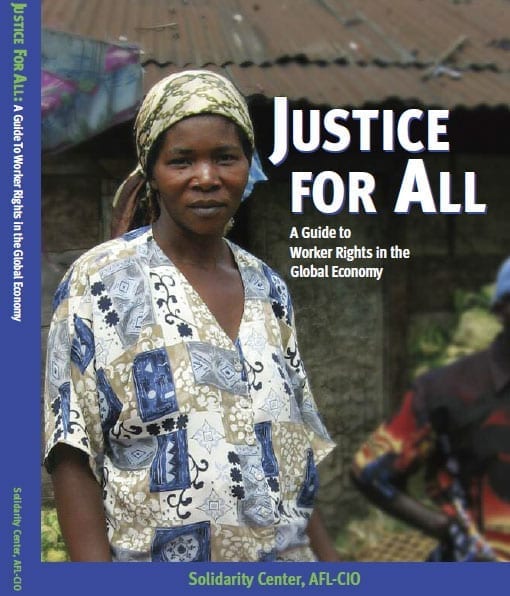
Justice for All (2008)
"Justice for All" examines the effects of global economic integration in the late 20th century on worker rights, including the growth of the informal economy and migration and human labor trafficking, and looks at how government, corporations and unions can help...
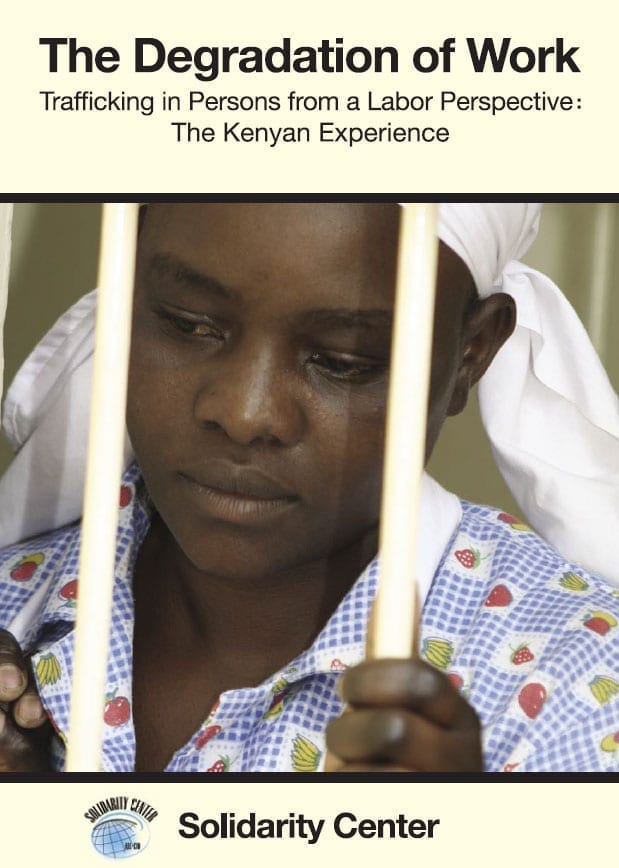
Trafficking in Persons from a Labor Perspective: The Kenyan Experience (2007)
Trafficking in Persons from a Labor Perspective: The Kenyan Experience provides readers with a general overview of human trafficking in persons from a labor perspective, with a focus on universal and global themes as illustrated by the experiences in Kenya. The...
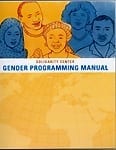
Solidarity Center Gender Programming Manual (2006)
This 70-page handbook incorporates staff insights and experiences into checklists and tools needed to develop programs that redress gender inequity in the workplace, promote leadership roles for women, and move closer to achieving full worker rights. Download here....
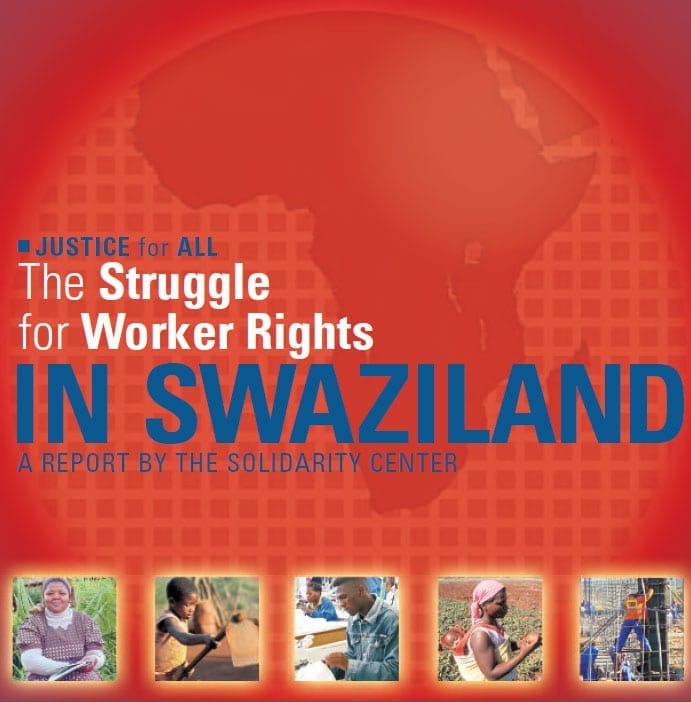
The Struggle for Worker Rights in Swaziland (2006)
Swazi workers face many challenges, especially women workers, who have a low status in Swazi society and make up a large percentage of the workforce, yet endure discrimination and workplace sexual harassment and violence. Improvements at the workplace cannot be...
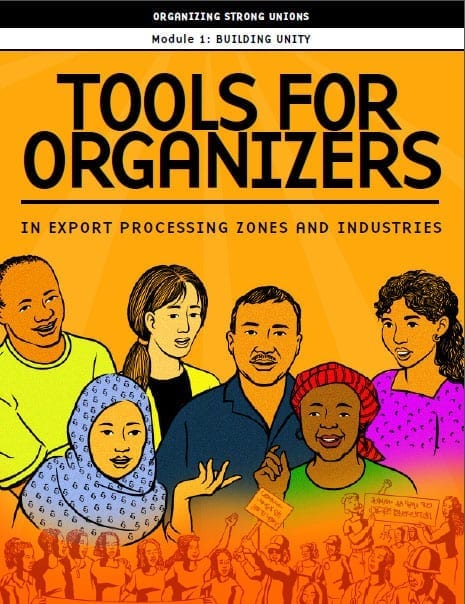
Tools for Organizers in Export Processing Zones and Industries
Building worker power is fundamental to achieving worker rights, and organizing strong unions is fundamental to achieving worker power--and this hands-on guide gives trainers the tools they need to build unity and ultimately, change the rules of the game. Download...

